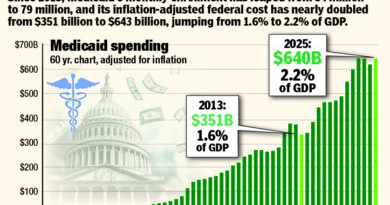Trump Administration Requires a Trade Agreement to Alleviate Investor Concerns
Approximately ten days ago, an increasingly assured Scott Bessent began conveying to Wall Street executives that he was on the brink of lifting the significant shadow looming over the US markets and economy: The Treasury Secretary announced that he was making substantial headway in securing trade agreements with India, Japan, South Korea, and Australia, which are among our largest trade partners.
The markets would welcome such a move; President Trump could progress with his broader strategy of isolating the rogue player in global trade, China, which is notorious for its high tariffs and frequent theft of US intellectual property.
This would help him avoid an existential threat to his nascent presidency due to a tariff-driven economic collapse that could trigger rampant inflation and a recession.

However, that was last week, and there are still no agreements — at least none that appear to be imminent by press time on Monday — which is why the markets resumed trading on Monday in free fall. The situation was exacerbated when Trump added to the uncertainty by labeling Fed Chair Jerome Powell a “major loser,” implying that he intends to try to oust him due to his hesitance to lower interest rates amid fears that tariffs could fuel inflation.
Stock values plummeted by over 2%, depending on the index. The Dow dropped by 1,200 points at one stage, bond yields surged, and there were more concerning signs: a move away from US treasuries or the dollar toward gold and Bitcoin, the world’s largest cryptocurrency, which lacks any inherent value aside from what individuals perceive it to be worth.
The trade war was not anticipated to unfold this way.
Dan Ives, a seasoned tech analyst at Wedbush, summarized the situation: “The White House must finalize trade agreements swiftly with a negotiation track established with China; otherwise, the markets, 10-year yield, USD, Gold, and the economy will diverge significantly over the upcoming weeks and months.”
Thus far, businesses have refrained from announcing layoffs amidst the uncertainty because, as one institutional investor noted, “Trump might just manage to secure these favorable trade agreements.”
But what happens if he doesn’t?
This has become an increasingly pressing concern for major investors and corporate executives as they witness their costs escalating due to tariffs alongside a potential economic slowdown.
For instance: Japan appeared to be on the verge of reaching an agreement, but then progress stalled. A prominent investor was informed by a Japanese trade official that the White House keeps adjusting the specific terms. The White House believes Japan, along with the other nations on Bessent’s list, has been slow to dismantle protectionist trade barriers for US goods.
Wall Street perceives messaging as a lingering issue. While Bessent attempts to steer negotiations toward a more centrist approach, Trump’s vocal and hawkish Commerce Secretary Howard Lutnick remains engaged in trade discussions alongside Jamieson Greer, the US trade ambassador. All three participated in last week’s White House meeting with Japanese trade minister Ryosei Akazawa.
Peter Navarro, the staunchly hawkish Trump trade advisor, is perpetually involved in the discussions.
Most concerning is that markets, and businesses in general, thrive on certainty, and Trump is anything but predictable when it comes to negotiations; his talent lies in keeping the other party on edge, a strategy he’s effectively employed in the past with banks throughout his extensive career in real estate and business.
That approach worked then. The crucial question now is whether it will succeed as he negotiates with nations instead of creditors.
“Ultimately, it doesn’t matter what Bessent thinks or does because he’s working for Trump,” remarked one banker who deals with the White House.



